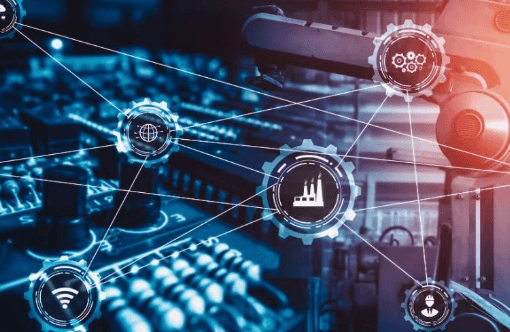Industrial Automation and Industry 4.0: Pioneering the Future of Manufacturing

Introduction
The manufacturing landscape is undergoing a dramatic transformation with the advent of Industry 4.0 and the rise of industrial automation. These advancements are driving unparalleled levels of efficiency, productivity, and innovation across industries. This article explores the relationship between industrial automation and Industry 4.0, delving into the technologies, benefits, challenges, and the future of automated manufacturing.
Understanding Industrial Automation
Industrial automation refers to the use of control systems, such as computers or robots, and information technologies to handle different processes and machinery in an industry to replace human intervention. This automation ranges from simple processes like assembly line production to complex tasks such as precision machining and quality control. The goal of industrial automation is to increase efficiency, reduce costs, and improve the consistency and quality of production.
See also: Automation in Software Development and DevOps: Enhancing Efficiency and Collaboration
The Evolution of Industrial Automation
The journey of industrial automation began with the first industrial revolution, where mechanization powered by steam and water marked the beginning of automated production. This evolved into electrical automation in the second industrial revolution, and later to the use of electronics and information technology in the third. Today, with the advent of Industry 4.0, automation has reached a new pinnacle, integrating cutting-edge technologies like AI, IoT, and robotics into industrial processes.
Introduction to Industry 4.0
Industry 4.0, often referred to as the fourth industrial revolution, represents a new phase in the industrial revolution that focuses heavily on interconnectivity, automation, machine learning, and real-time data. This revolution is characterized by the fusion of physical, digital, and biological systems, creating smart factories where machines communicate with each other to optimize production processes autonomously.
Key Technologies Driving Industry 4.0
Industry 4.0 is driven by a convergence of several advanced technologies, including:
- Internet of Things (IoT): Connecting machines and systems to collect and analyze data for smarter decision-making.
- Artificial Intelligence (AI): Enabling predictive maintenance, process optimization, and automated quality control.
- Big Data and Analytics: Leveraging vast amounts of data to gain insights and optimize industrial processes.
- Cloud Computing: Providing scalable and flexible computing resources to support industrial automation.
- Cyber-Physical Systems (CPS): Integrating physical processes with digital control systems for real-time monitoring and control.
These technologies collectively enable a more interconnected, efficient, and flexible manufacturing environment.
The Role of Automation in Industry 4.0
Automation is a fundamental aspect of Industry 4.0, allowing for the seamless integration of various technologies to create a more responsive and adaptable manufacturing process. Through automation, Industry 4.0 enables smart factories where production lines can self-optimize, machines can communicate and coordinate with each other, and entire production processes can be monitored and controlled remotely.
Benefits of Industrial Automation in Industry 4.0
The integration of automation with Industry 4.0 technologies brings several benefits:
- Enhanced Productivity: Automation increases production speed and reduces downtime, leading to higher output.
- Flexibility: Automated systems can be quickly reconfigured to handle different tasks, making production more adaptable to changing demands.
- Cost Efficiency: Reducing the need for manual labor and minimizing waste leads to significant cost savings.
- Innovation: Automation facilitates the development of new manufacturing techniques and the rapid prototyping of products.
These benefits are driving the widespread adoption of Industry 4.0 principles across the manufacturing sector.
Smart Factories: The Heart of Industry 4.0
Smart factories represent the pinnacle of Industry 4.0, where the entire production process is interconnected and highly automated. In a smart factory, machines, sensors, and systems communicate and collaborate in real-time, adjusting operations to optimize efficiency and minimize downtime. These factories leverage advanced analytics and AI to make decisions and continuously improve processes, creating a dynamic and highly efficient manufacturing environment.
The Industrial Internet of Things (IIoT)
The Industrial Internet of Things (IIoT) is a key component of Industry 4.0, enabling the connection of industrial devices to the internet for data exchange and analysis. IIoT applications include predictive maintenance, where machines are monitored in real-time to detect potential failures before they occur, and supply chain optimization, where data from various sources is used to streamline logistics and inventory management.
Artificial Intelligence in Industrial Automation
Artificial Intelligence (AI) plays a crucial role in enhancing industrial automation. AI algorithms are used for predictive maintenance, where they analyze data from sensors to predict equipment failures before they happen. AI also enables quality control processes to be automated, ensuring that products meet exact specifications without the need for manual inspection. Furthermore, AI helps in optimizing production processes by analyzing vast amounts of data to identify patterns and make recommendations for improvements.
Cyber-Physical Systems and Digital Twins
Cyber-Physical Systems (CPS) are integrated networks of physical devices and digital systems that interact in real-time to control and monitor industrial processes. A key application of CPS is the use of digital twins, which are virtual models of physical systems. Digital twins allow manufacturers to simulate and optimize production processes in a virtual environment before implementing changes in the real world, reducing the risk of errors and improving efficiency.
Challenges in Implementing Industry 4.0 Automation
While the benefits of Industry 4.0 automation are significant, there are also challenges:
- Technical Complexity: Integrating new technologies with existing systems can be complex and costly.
- Workforce Transformation: The shift to automated systems requires workers to acquire new skills and adapt to changing roles.
- Data Security: As industrial systems become more connected, they are also more vulnerable to cyber-attacks, making security a critical concern.
- Standardization: The lack of standardization across different systems and platforms can hinder interoperability and integration.
Overcoming these challenges requires careful planning, investment in training, and a focus on cybersecurity and standardization.
Case Studies of Industry 4.0 and Automation
Several industries have successfully implemented Industry 4.0 automation, including:
- Automotive Industry: Companies like




